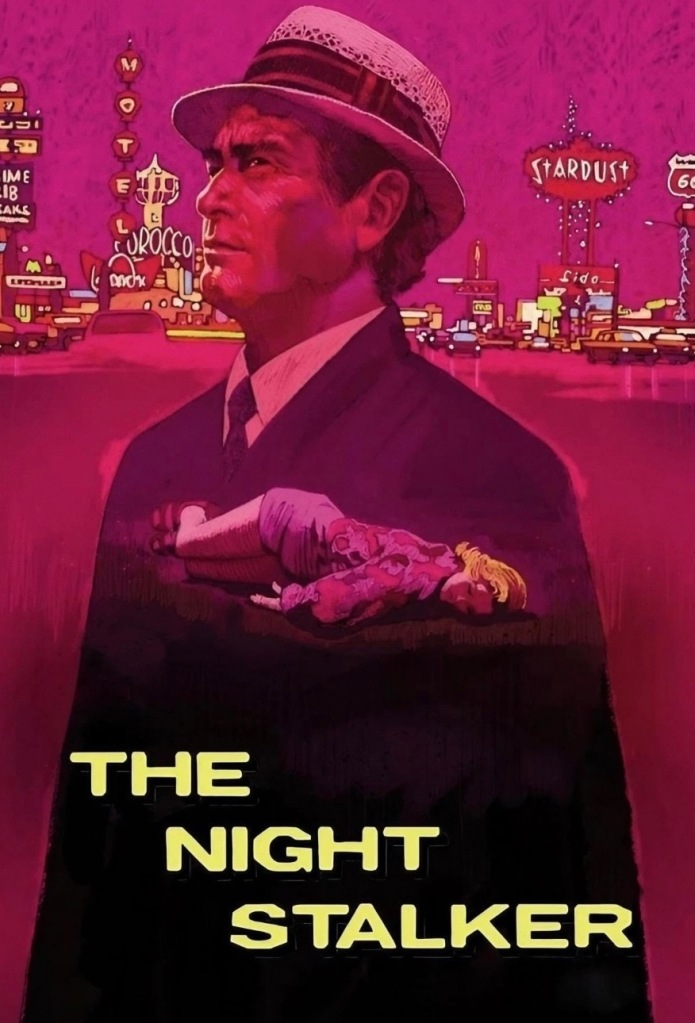Television is a hungry beast. Back before the internet it was probably less hungry, but still the desire for content was constant. A few individuals worked the monster side of the tube, one of them being Dan Curtis. Dark Shadows was Curtis’ idea, and it was in that context that he began to have an influence over my life. I wouldn’t have recognized his name in those days, of course—do we ever really recognize those who become part of the arc of life’s direction when we’re kids? Curtis produced a television movie that I’d never seen, taking on the vampire tale again. The Night Stalker isn’t a great film—it was produced for television, after all—but it started something. That something was the weekly series Kolchak: The Night Stalker.
I’ve been watching episodes of Kolchak and realized that I was missing something—the origin story. As an historian I really like to keep things in order. Since my research is conducted on my limited free time and limited budget, I still discover things others probably knew long ago. In any case, I decided to hunt down and watch The Night Stalker. It introduces, of course, the character of Kolchak. In a way that seems unnecessary for 1972, it narrates quite a bit of vampire lore. It even frames some scenes from Bela Lugosi’s 1931 Dracula. As I watched this period piece for the first time, I realized that the actual night stalker wasn’t originally Kolchak. In this movie it’s clearly Janos Skorzeny, the vampire. The movie was based on an (at the time) unpublished novel by Jeff Rice. And so began a number of cascading things.
I didn’t watch Kolchak as a child. I do remember other kids talking about it, but it never made its way into our evening television watching. (My mother was concerned that I had nightmares as a child and didn’t encourage scary things before bed. Decades on I’m still prone to nightmares, but as I said, arcs get set early on.) Kolchak is kind of a hapless character, rubbing people the wrong way. The movie leaves many unanswered questions, but it was good fare for unreflective television monster purposes. There had been monsters before—I think we all owe a great debt of gratitude to Rod Serling’s Twilight Zone—but Kolchak made the horror element, always laced with comedy, central. The television movie received the highest ratings of any television movie to that point. And we all know that such things lead to sequels. Television is ever hungry.


Pingback: Stalking the Stalker | Steve A. Wiggins
Pingback: Fun Homework | Steve A. Wiggins